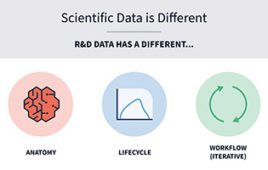Mathematician David Blackwell, 1st Black Scholar in National Academy of Sciences, Dies at 91
 |
| David Blackwell at 80 Courtesy of the State University of New York, Buffalo |
David Blackwell, a pre-eminent mathematician and the first black scholar in the National Academy of Sciences, has died. He was 91. Blackwell died of natural causes at a hospital on July 8, 2010, University of California, Berkeley officials said.
Blackwell was the first tenured black professor at the campus, where he taught for nearly 35 years. He was known as a problem-solver who contributed to many areas, including probability and game theory.
Berkeley statistics professor Peter Bickel said Blackwell had a talent for making things appear simple.
“He liked elegance and simplicity,” Bickel said. “That is the ultimate best thing in mathematics, if you have an insight that something seemingly complicated is really simple.”
Blackwell referred to himself as “sort of a dilettante” in an interview for the 1985 book Mathematical People: Profiles and Interviews, explaining he chose problems because he wanted to understand them, independent of what field they might fall under.
He was born in Centralia, a small town in southern Illinois, on April 24, 1919. He was the oldest child of a railway worker who had a grade-school education. Blackwell entered the University of Illinois at 16, earning a doctorate in 1941, when he was 22.
After graduation, he was appointed a postdoctoral fellow, alongside Albert Einstein and John von Neumann, at the Institute for Advanced Study in Princeton, NJ. He left in a year, however, after being blocked from becoming an honorary Princeton University faculty member, as was customary for fellows, because of his race.
He worked for short periods as a statistician in the U.S. Office of Price Administration, at Southern University in Baton Rouge, LA, and at Clark College in Atlanta. He was courted by Berkeley, but his appointment was blocked — again because of his race. In 1944, he joined the faculty of Howard University. By 1947, he was head of the mathematics department, a position he held until 1954, when he finally was hired by Berkeley.
He taught at the university until his retirement in 1988. After that, he routinely visited his department to discuss statistics with colleagues, his son Hugo said.
“He was totally dedicated to his field, and always thought that it’s not what you have, but what you think, that is important,” he said.
Blackwell was a fellow of the American Academy of Arts and Sciences, American Association for the Advancement of Science, Institute of Mathematical Statistics, American Mathematical Society and American Philosophical Society.
He won the John von Neumann Theory Prize from the Operations Research Society of America and the Institute of Management Sciences in 1979. He also wrote two books, published more than 80 papers and held 12 honorary degrees from Harvard, Yale, Carnegie Mellon, Howard and other universities.
Copyright 2010 The Associated Press




